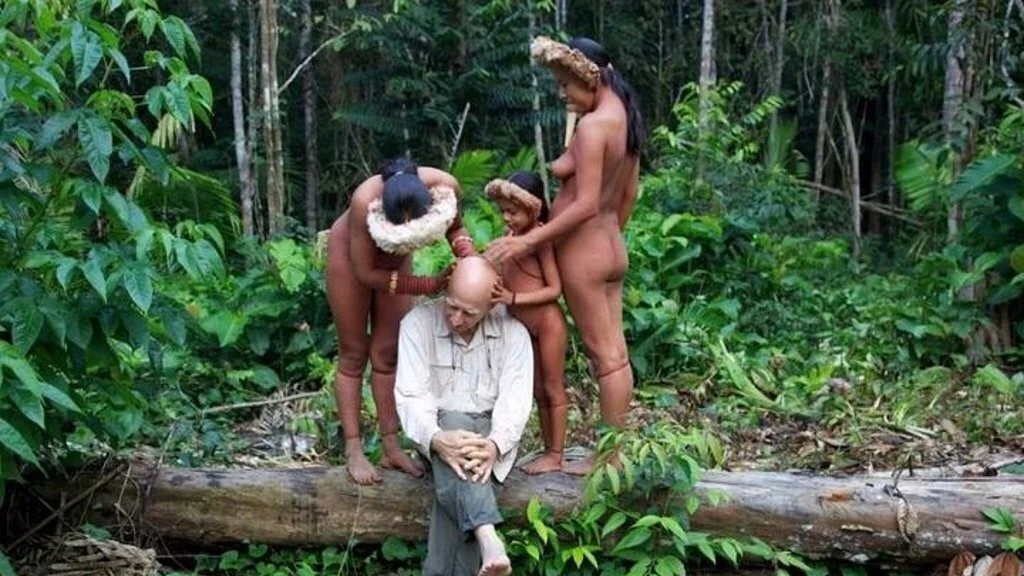The Salt of the Earth
Wim Wenders reminds us that Werner Herzog is not the only German director making outstanding documentaries.
au naturel: Sebastião Salgado is inspected by some of his subjects
Much as I relish many of the documentaries made in recent times by the idiosyncratic Werner Herzog so often memorably present in his own work, I am glad that the filmmaker here is the less obtrusive Wim Wenders. Both Wenders, speaking in English, and his Brazilian co-director Juliano Ribeiro Salgado offer voice-over comments, but neither of them commands the film: the vital presence here is Juliano’s father, the photographer Sebastião Salgado, and it is his life and work that provide the subject of this movie.
As with such recent features as McCullin and the film about Jane Bown, we have here a film with strong biographical elements which is memorable for the work of the featured photographer enhanced by being seen on film. The Salt of the Earth is a very well photographed work, but it is Sebastião Salgado’s own photographs that appear nothing less than magnificent – and not least his black and white images which are shown in the correct ratio placed in the centre of the screen.
But The Salt of the Earth is about much more than art. Having started by showing Wenders link up with father and son in Indonesia in 2011, the film looks back to tell us first of events leading up to the moment towards the end of the sixties when Sebastião’s wife, Leila, encouraged him to follow his heart. This involved giving up his work as an economist to make photography central to his life. What followed took him around the world and this at some sacrifice to his home life but, believing that people are indeed the salt of the earth, he decided that the true business of a photographer was to highlight human issues worldwide.
This was a course that over the years brought him into direct awareness of violence, human suffering and genocide to such an extent that he lost faith in mankind. What he saw (and photographed) brought him to the heart of darkness and to the view that the human race is barbarous. The force of this film is such that it has almost as much power as Alain Resnais’s Night and Fog, that supreme realisation in cinema of man’s inhumanity to man. But, as the later sequences show us, Sebastião Salgado by turning his attention to nature and the natural world was able to counter his despair. In following the arc of his life, one which would eventually find hope for the world restored, The Salt of the Earth may be a bit long (110 minutes) and slightly too episodic late on, but that is to quibble. This is a truly magnificent document worthily showing us a memorable man while confronting key aspects of the human condition.
MANSEL STIMPSON
Featuring Sebastião Salgado, Juliano Ribeiro Salgado, Lélia Wanick Salgado, Wim Wenders.
Dir Wim Wenders and Juliano Ribeiro Salgado, Pro David Rosier, Written by Salgado, Wenders and Rosier, Ph Hugo Barbier and Salgado, Ed Maxine Goedicke and Rob Myers, Music Laurent Petitgand.
Decia Films/Amazonas Images/Fondazione Solares delle Arti etc.- Curzon Film World.
110 mins. France/Italy/Brazil 2014. Rel: 17 July 2015. Cert. 12A.


